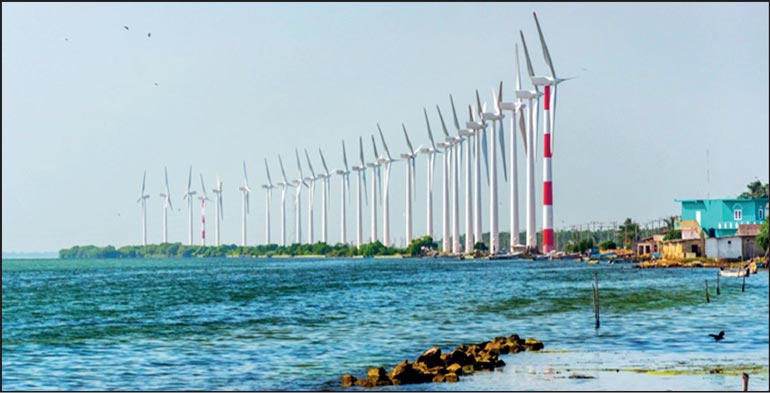Sunday Feb 22, 2026
Sunday Feb 22, 2026
Friday, 17 October 2025 00:28 - - {{hitsCtrl.values.hits}}

In a move aimed at accelerating the country’s transition towards renewable energy and sustainable industrial growth, the Government has announced new regulations granting duty and tax exemptions for the import and local purchase of capital goods used in priority development projects.
The regulation, issued under the powers vested in Finance, Planning and Economic Development Minister Anura Kumara Disanayake by Section 101(1) of the Customs Ordinance, was published in the Gazette and will take effect from 15 October 2025. It amends the existing 2018 framework to include renewable energy storage as an eligible investment sector under the bonded warehouse facility.
Under the revised rules, the bonded warehouse scheme will now facilitate the import or local purchase of approved capital goods—free of selected duties and taxes—for registered companies engaged in constructing or expanding facilities in five key industries: dairy manufacturing, pharmaceutical manufacturing, medical equipment production, solid waste management, and renewable energy generation or storage.
The regulation outlines that eligible renewable energy projects must involve the construction of new facilities or expansion of existing ones with at least 1 megawatt (MW) of generation capacity or 1 megawatt-hour (MWh) of storage capacity.
The amended regulation replaces Sections 3, 4.v, and 5 of the 2018 Gazette (No. 2083/33), broadening the scope of incentives previously limited to manufacturing. By covering renewable energy and environmental management projects, the policy reflects the Government’s renewed focus on green investment, energy security, and sustainable industrialisation as part of its 2026 economic development roadmap.
Analysts say the measure could attract both local and foreign investors into Sri Lanka’s emerging clean energy sector, helping the country move closer to its target of generating 70% of electricity from renewable sources by 2030, while also reducing import dependence on fossil fuels.